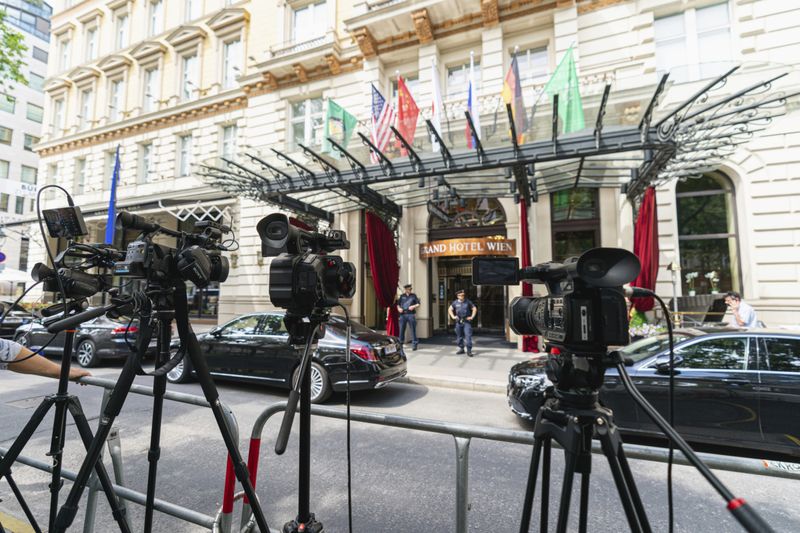
Tehran: Iran and international inspectors are on the clock to renew a temporary atomic-monitoring pact due to expire on Thursday, a key step before broader negotiations resume on reviving the Islamic Republic’s nuclear agreement with world powers.
It’s the second time in little more than a month that International Atomic Energy Agency Director General Rafael Mariano Grossi has been forced to press Iran into prolonging the pact, which preserves video and enrichment data captured at nuclear installations. Tehran’s government has threatened to permanently delete the information depending on the outcome of wider discussions over sanctions relief.
* Losing that continuity of knowledge would spark a diplomatic crisis and jeopardise the negotiations on reviving the 2015 deal, diplomats say.
Iran’s Supreme National Security Council will only decide whether to prolong the monitoring pact after it expires at midnight, Mahmoud Vaezi, President Hassan Rouhani’s chief of staff, told reporters on Wednesday, according to an online report by the state-run Islamic Republic of Iran Broadcasting. The country similarly let a previous monitoring deadline lapse by 24 hours last month before agreeing with Grossi on an extension.
The IAEA declined to comment on Thursday.
Grossi’s been warning for weeks that failure to extend the pact would degrade international understanding of the country’s nuclear programme just as Iran is massively expanding uranium enrichment with advanced new technologies. US sanctions aren’t able to prevent Iran from ramping up production of uranium that’s technically indistinguishable from the material needed for weapons, the Argentine diplomat told Bloomberg Television last week.
“When you get into this kind of activity you must have commensurate inspections,” said Grossi, emphasising that unless his inspectors are given wider access, international knowledge of Iran’s work is only an “illusion.”
Iran began restricting other types of IAEA monitoring from February in response to former US President Donald Trump’s exit from the nuclear deal three years ago and reimposition of US sanctions.

US negotiators led by Robert Malley are preparing to return to Vienna for a seventh round of indirect talks with Iran as early as next week. However, that date could also be pushed back if Tehran’s leadership isn’t ready to engage, according to an official, who asked not to be identified discussing private deliberations.
Iranians on June 18 elected a hardline cleric and judiciary chief, Ebrahim Raisi, to succeed Rouhani in August.
Intrusive IAEA inspections were originally seen as the centerpiece of Iran’s 2015 agreement with world powers, which verifiably rolled back the country’s nuclear work in exchange for sanctions relief. Iran gradually reconstituted its work after the US withdrawal.
China, France, Germany, Russia and the UK met their Iranian colleagues for a sixth round of talks that adjourned on Sunday without reviving the 2015 accord. European Union deputy foreign policy chief Enrique Mora said after they concluded that he expected Iran and the IAEA to prolong their inspection pact before diplomats meet again for a seventh round of negotiations.
The longer the talks drag on, the harder it will become to reinstate the same safeguards preventing Iran from breaking out of a deal and rapidly assembling a weapon, according to one European diplomat briefed on the matter, who asked not to be identified because the negotiations are private.
The original accord ensured Iran would need at least a year to accumulate the nuclear material and expertise needed to construct a weapons. However, engineers and scientists have gained significant knowledge in the two years since the Islamic Republic broke its nuclear covenants in response to US sanctions, an enduring legacy of Trump’s decision to leave the deal, the diplomat said.








